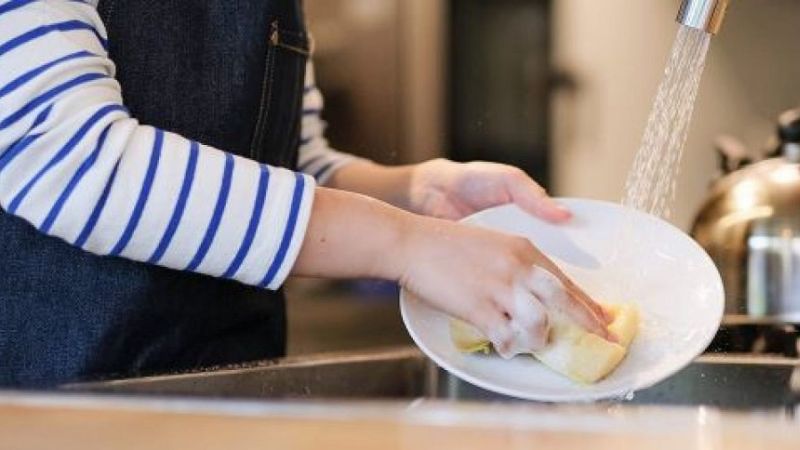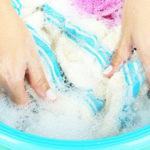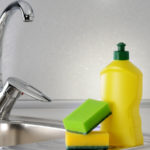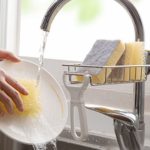The daily task of washing dishes is very familiar to every household. However, many people still wonder whether washing dishes with hot water or cold water will yield the best results. Let’s address this question now!
Should you wash dishes with hot water or cold water?
In fact, during colder periods, especially when the water temperature is below 30 degrees Celsius, washing dishes with cold water can leave a greasy layer on the surface, causing discomfort and compromising hygiene.
Moreover, in cold weather, using cold water and dishwashing detergent can cause the skin on your hands to peel, while grease stains will adhere more tightly to cooking utensils, turning dishwashing into a daily nightmare.
Therefore, in these situations, using hot water to wash dishes is a highly sensible choice. It not only brings about higher efficiency but also helps better protect the skin on your hands.
 Should you wash dishes with hot water or cold water?
Should you wash dishes with hot water or cold water?
The benefits of washing dishes with hot water
- Thoroughly clean stubborn stains and grease clinging to the surface of dishes
- Minimize the greasy film layer on the surface of utensils after washing
- Quickly soften stubborn stains, saving time and reducing detergent usage
- Efficiently remove food odors from utensils, especially plastic storage containers and acrylic dishes
- Reduce the risk of moisture, mold, and damage to wooden utensils such as chopsticks, spoons, and cutting boards
 The benefits of washing dishes with hot water
The benefits of washing dishes with hot water
Mistakes to avoid when washing dishes
Washing a bunch of chopsticks at the same time
When it comes to cleaning chopsticks, it is advisable to avoid washing multiple chopsticks together as much as possible. Instead, wash them pair by pair or piece by piece to easily scrub off any food residues on the chopstick heads and prevent them from turning into mold. Especially when using wooden chopsticks, make sure to thoroughly dry them before use.
Using only one type
To ensure thorough cleaning of stubborn residues and maintain hygiene in the kitchen and on cooking utensils, it is advised to use different dishwashing tools for different purposes. Additionally, have separate kitchen towels and dish cleaning towels available for specific needs.
 Mistakes to avoid when washing dishes
Mistakes to avoid when washing dishes
Not drying the dishes
After washing the dishes, it is essential to place them on a rack or in a dish drainer to allow the water to drain before storing them in the cabinet. This helps prevent your dishes from absorbing the smell of dishwater or becoming wet every time you use them.
We hope that this article has helped you understand the benefits of washing dishes with hot water. Don’t forget to follow Bách hoa XANH every day for the most useful kitchen tips!


































